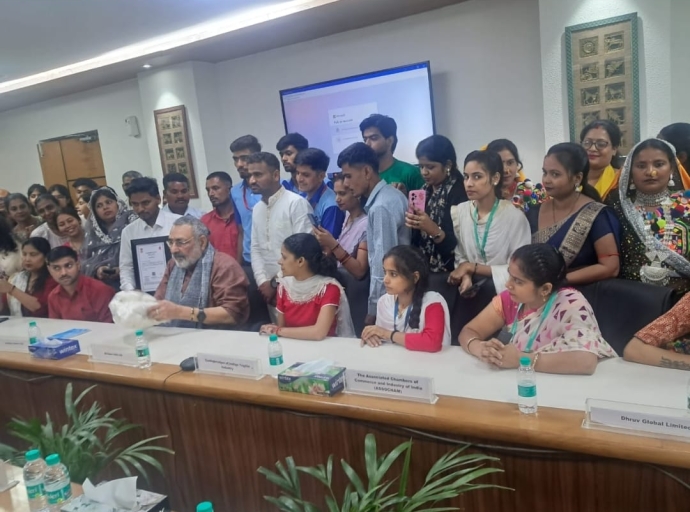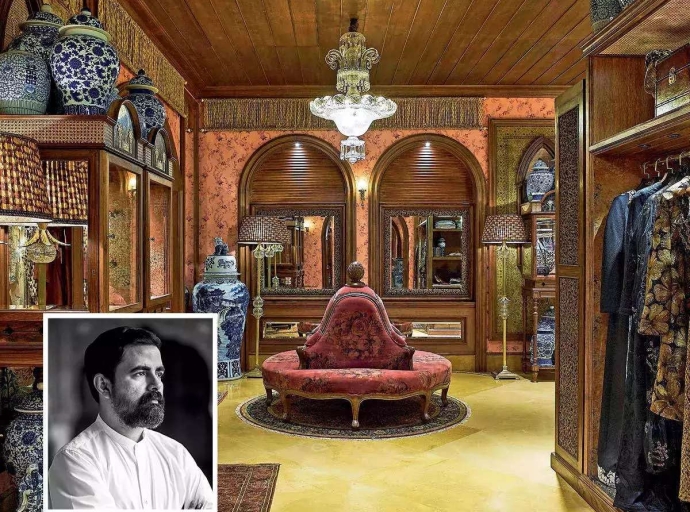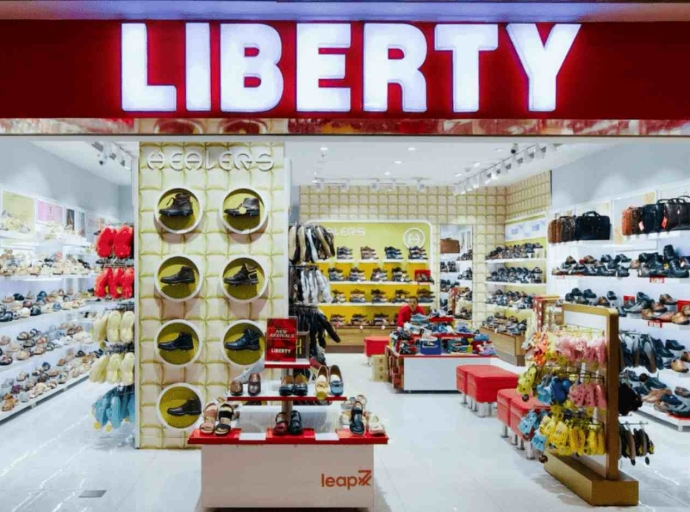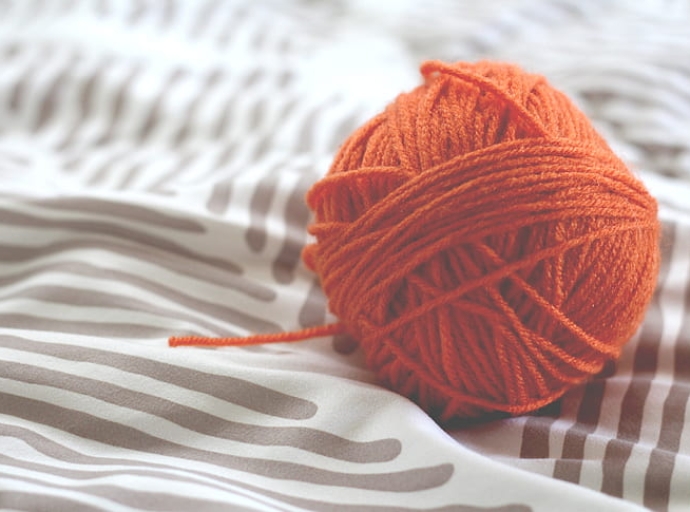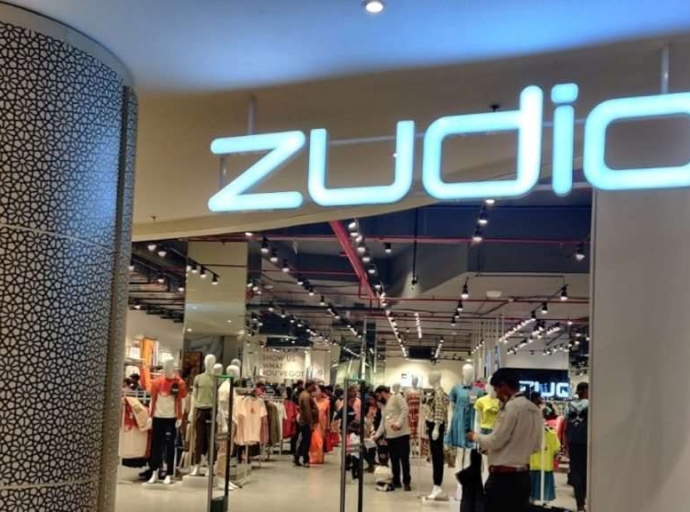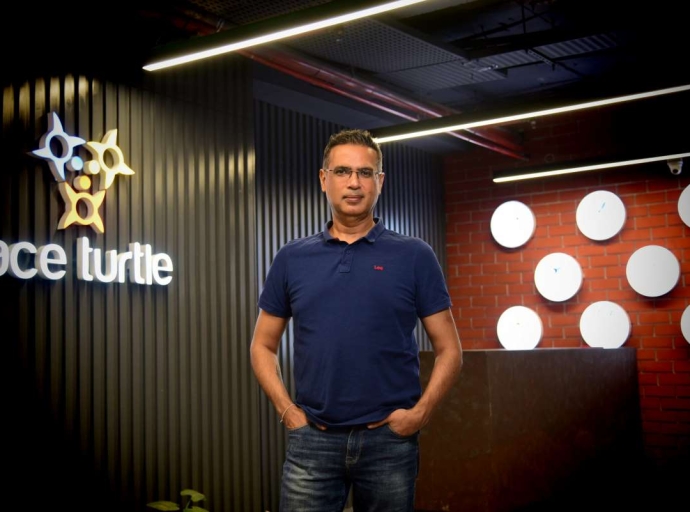Tata group's retail arm, Trent Ltd, has reported a 56.24 per cent drop in its consolidated net profit for the fourth quarter ending March 31, 2025, clocking in Rs 311.60 crore. This decline from the Rs 712.09 crore profit, reported in the same period last year comes despite a 27.87 per cent rise in revenue from operations, which was Rs 4,216.94 crore. These figures highlight a complex scenario for the retail giant navigating a dynamic market.
While the year-on-year profit decrease is substantial, a closer examination through expert predictions and past trends reveals an interesting scenario. Analysts had previously flagged the potential for margin fall in the retail sector during the latter half of FY'25, due to factors like rising input costs, aggressive expansion, and higher promotional activities to maintain market share.
The profit paradox
The impressive revenue growth of nearly 28 per cent underscores the continued strong performance of Trent's popular brands like Westside, Zudio, and Star. This indicates a healthy consumer appetite for their offerings and the effectiveness of their market penetration strategies. However, the simultaneous profit slump highlights a critical challenge -- escalating expenses. Trent's expenses were up 26 per cent jump in the March quarter, reaching Rs 3,874.43 crore. This is due to several reasons.
Expansion costs: Trent has been on an aggressive expansion drive, particularly its value fashion brand Zudio, adding 244 stores in FY'25. Setting up new stores entails significant upfront costs, including lease rentals, fit-outs, and initial operating expenses. Experts had anticipated these investments would exert pressure on near-term profits.
Input cost inflation: The broader economic environment has seen inflationary pressures across inputs, including raw materials for apparel, logistics, and energy. These costs would invariably impact the cost of goods sold and operational expenses.
Marketing and promotional activities: To maintain strong revenue growth in a competitive market, retailers often resort to increased marketing and promotional activities, which add to the overall expenditure. Analysts note that a steeper-than-usual quarter-on-quarter drop of 9.7 per cent in standalone gross revenue for Q4 FY'25 might suggest aggressive discounting to clear stock.
Brand-wise performance
Zudio: The value fashion brand has been the primary driver of Trent's store expansion, adding 244 stores in FY'25. This aggressive growth strategy has boosted revenue. However, expansion comes with higher initial setup costs and potentially lower average transaction values compared to Westside, which could be contributing to the margin pressure in the short term. Analysts believe Zudio's focus on Tier II, III cities is a major growth driver, but profits need to be monitored. The back-ended store additions in FY'25 suggest that the full revenue impact of these new stores will be more evident in FY'26.
Westside: As the established premium fashion brand in Trent's portfolio, Westside commands higher average transaction values and potentially better gross margins compared to Zudio. While the number of new Westside stores were 40 in FY'25 it is significantly lower than Zudio, its contribution to the overall profit has been substantial. Any slowdown in same-store sales growth could have an impact on Trent's overall profits. The consolidation of 24 Westside stores in FY'25 might indicate a rationalization of its store footprint.
Star Bazaar: Operating in the hypermarket and supermarket segment, Star Bazaar caters to a different consumer base and product mix. The performance of Star Bazaar is influenced by factors such as food inflation, competition from other grocery retailers (both online and offline), and overall consumer spending on essentials and discretionary food items. The consolidation of 24 Star Bazaar stores alongside Westside suggests a possible review and optimization of the physical store presence across formats.
Expert foresight
While the company has consistently shown strong revenue growth in recent years (as evident in the full-year FY'25 revenue increase of 37.02 per cent), analysts had cautioned that maintaining the same pace of profit growth amidst an evolving economy would be challenging. Notably, the standalone gross revenue for the entire fiscal year 2025 grew by 39 per cent year-on-year.
Table: Trent’s profits and operations revenue
|
Quarter ended
|
Consolidated net profit (Rs cr)
|
Revenue from operations (Rs cr)
|
|
March 31, 2024
|
712.09
|
3,297.70
|
|
June 30, 2024
|
335.35
|
3,021.27
|
|
Sept 30, 2024
|
403.57
|
3,454.55
|
|
Dec 31, 2024
|
483.89
|
3,660.61
|
|
March 31, 2025
|
311.6
|
4,216.94
|
Source: Trent Ltd. Regulatory Filings
As the table illustrates, while revenue has consistently grown, net profit in Q4 FY'25 is lower than the corresponding period in previous year and also the preceding quarter. This reinforces the narrative of decline in margin impacting the bottom line.
In fact, several case studies in the retail sector highlight this delicate balance between aggressive growth and maintaining profits. For example, while fast-fashion retailers often achieve rapid revenue growth through store openings and competitive pricing, their profit margins can be susceptible to factors like supply chain disruptions and the need for frequent markdowns. Similarly, retailers focusing on premium segments might prioritize higher margins over breakneck expansion. Trent, with its diverse portfolio spanning value (Zudio) to premium (Westside), is navigating this complex terrain. The current results suggest the focus on rapid expansion, particularly of Zudio, might be temporarily impacting overall profit.
Navigating growth and profits
Looking ahead, the near-term outlook for Trent appears to be mixed, with analysts offering varied perspectives.
Meanwhile, Trent has acknowledged the positive customer traction across markets due to growing brand awareness, especially in Tier II, III cities where they increased their presence in FY'25. They believe this bodes well for the next phase of growth. The company's emphasis on expanding its reach, particularly through Zudio, suggests a continued focus on revenue growth.
Despite the Q4 profit dip, several experts are optimistic about Trent's long-term prospects, citing strong revenue growth and aggressive store additions, particularly for Zudio. Target prices from various analysts range between Rs 5,900 and Rs 7,600. Motilal Oswal expects revenue, EBITDA, and PAT to grow at a CAGR of 32 per cent, 34 per cent, and 39 per cent, respectively, between FY24-27. They anticipate the back-ended strong store additions in Zudio should aid growth in FY'26. However, the performance of each brand, particularly the ability of Zudio's new stores to achieve profits and the resilience of Westside's margins, will be critical.
Analysts emphasize the recovery in same-store sales growth across fashion and Star formats will be a crucial factor to watch in the near term. Concerns exist regarding a slowdown in like-for-like sales growth and potential cannibalization from new stores, especially within the same brand. The individual performance metrics for Zudio (average sales per sq. ft, profits per store), Westside (same-store sales growth, margin stability), and Star Bazaar (revenue growth, competitive positioning) will offer deeper insights into Trent's overall health.
Future profits will hinge on Trent's ability to effectively manage its expanding operations for each brand, optimize costs, and navigate consumer demand and competition within each segment. The next few quarters will be critical in demonstrating whether the company can translate its top-line momentum into sustainable and healthy profit growth across formats.

